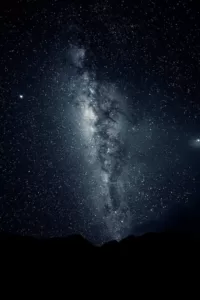Unveiling the Ultimate Question: Is the Universe Conscious?
What is consciousness? How does it arise? Is it a property of matter, a product of the brain, or something else entirely? These are some of the most challenging and fascinating questions that humans have ever asked. They are also questions that have profound implications for our understanding of reality and ourselves.
There are many different perspectives on the nature and origin of consciousness, such as materialism, dualism, idealism, and panpsychism. Materialism is the view that consciousness is a physical phenomenon that emerges from complex interactions of matter and energy. Dualism is the view that consciousness is a non-physical phenomenon that exists separately from matter and energy. Idealism is the view that consciousness is the fundamental reality and that matter and energy are manifestations of it. Panpsychism is the view that consciousness is a universal attribute of all things, from atoms to galaxies.
In this blog post, I will argue that the universe is conscious in a way that is different from human or animal consciousness, and that this has profound implications for our understanding of reality and ourselves.
 The Quantum Theory of Consciousness
The Quantum Theory of Consciousness
One of the most intriguing scientific theories that suggest that the universe is conscious is the quantum theory of consciousness proposed by Roger Penrose and Stuart Hameroff. This theory suggests that quantum phenomena in microtubules inside neurons are responsible for conscious experience¹².
Microtubules are tiny structures that form part of the cytoskeleton of cells. They are involved in various functions, such as cell division, transport, and movement. According to Penrose and Hameroff, microtubules are also quantum computers that process information at the subatomic level. They claim that quantum coherence and entanglement in microtubules allow for quantum superposition and collapse, which generate moments of awareness or choice.
Penrose and Hameroff argue that this quantum process is not limited to the brain, but extends to the entire universe. They suggest that the universe is composed of fundamental units called Planck-scale units, which are smaller than atoms and quarks. These units are also quantum computers that interact with each other through quantum gravity. Penrose and Hameroff propose that the universe is a giant quantum network that has a collective consciousness¹².
 The Integrated Information Theory of Consciousness
The Integrated Information Theory of Consciousness
Another scientific theory that supports the idea that the universe is conscious is the integrated information theory of consciousness developed by Giulio Tononi and others. This theory proposes that any system that has a high degree of information integration and differentiation has a level of consciousness.
Information integration is the ability of a system to combine information from different sources into a unified whole. Information differentiation is the ability of a system to distinguish information from different sources into distinct parts. According to Tononi, these two abilities are essential for consciousness, as they allow a system to have a rich and diverse experience of itself and its environment.
Tononi quantifies the degree of information integration and differentiation of a system by a measure called phi. Phi is calculated by comparing the amount of information generated by a system as a whole with the amount of information generated by its parts. The higher the phi, the higher the level of consciousness.
Tononi claims that phi can be applied to any system, from neurons to networks, from computers to galaxies. He suggests that any system with a non-zero phi has some degree of consciousness, even if it is very low or very different from human consciousness. He also speculates that the universe as a whole may have a very high phi, implying that it may have a very high level of consciousness.
 The Participatory Anthropic Principle
The Participatory Anthropic Principle
A third scientific idea that implies that the universe is conscious is the participatory anthropic principle suggested by John Wheeler and others. This idea implies that the universe only exists because of the observation and participation of conscious agents³.
The participatory anthropic principle is based on the observation that some physical constants and laws seem to be finely tuned for life and intelligence to emerge in the universe. For example, if the gravitational constant or the cosmological constant were slightly different, stars, planets, and life would not exist. This raises the question: why does the universe have these values?
One possible answer is that there are many possible universes with different values, and we happen to live in one that supports life and intelligence. This is known as the multiverse hypothesis. Another possible answer is that there is only one universe, but its values are determined by the observation and participation of conscious agents. This is known as the participatory anthropic principle.
According to Wheeler, the participatory anthropic principle means that reality is not fixed or objective, but depends on how we observe and interact with it. He suggests that we are not passive observers of reality, but active participants in creating it. He also proposes that the universe is not a machine, but a self-organizing system that evolves and learns from its own experience. He concludes that the universe is a mind-like entity that is conscious of itself and us³.
 The Mathematical Theory of Consciousness
The Mathematical Theory of Consciousness
A fourth scientific approach that indicates that the universe is conscious is the mathematical theory of consciousness proposed by Johannes Kleiner and Sean Tull. This theory aims to define consciousness in terms of abstract structures and relations¹².
Kleiner and Tull start from the assumption that consciousness is a fundamental property of reality, not a derivative or emergent one. They argue that consciousness cannot be explained by physical or biological processes, but by mathematical ones. They claim that mathematics is not a human invention, but a discovery of the underlying patterns and principles of reality.
Kleiner and Tull use category theory, a branch of mathematics that studies the relationships between different types of objects, to model consciousness. They define consciousness as a functor, a mapping that preserves the structure and properties of objects. They also define awareness as a natural transformation, a mapping that preserves the structure and properties of functors. They show that these concepts can be applied to any system, from atoms to brains, from computers to universes.
Kleiner and Tull suggest that their mathematical theory of consciousness can explain some of the features and mysteries of consciousness, such as qualia, intentionality, free will, and self-awareness. They also imply that their theory can reveal the nature and extent of consciousness in the universe. They hypothesize that the universe is a category, a collection of objects and morphisms, that has a functorial consciousness and a natural transformational awareness¹².
 The Philosophical Implications and Challenges
The Philosophical Implications and Challenges
The idea that the universe is conscious has many philosophical implications and challenges. Some of them are:
- The problem of solipsism: Solipsism is the view that only one’s own mind exists and that everything else is an illusion. If the universe is conscious, does it mean that we are all part of its mind? Are we real or imaginary? How can we know anything about reality?
- The problem of panpsychism: Panpsychism is the view that everything in the universe has some degree of consciousness and that this leads to absurd consequences. If the universe is conscious, does it mean that rocks, stars, and electrons are conscious too? How can we measure or compare their consciousness? What are their rights and responsibilities?
- The problem of morality: Morality is the question of how we should treat other conscious beings and entities in the universe. If the universe is conscious, does it mean that we have moral obligations to it? How should we respect its interests and preferences? How should we balance them with ours?
- The problem of identity: Identity is the question of who we are and how we relate to the rest of the conscious universe. If the universe is conscious, does it mean that we are part of it or separate from it? Do we have individuality or unity? Do we have a purpose or meaning?
Conclusion
In this blog post, I have argued that the universe is conscious in a way that is different from human or animal consciousness, and that this has profound implications for our understanding of reality and ourselves. I have presented four scientific theories that support this idea: the quantum theory of consciousness, the integrated information theory of consciousness, the participatory anthropic principle, and the mathematical theory of consciousness. I have also discussed some of the philosophical implications and challenges that this idea poses.
I hope you enjoyed reading this blog post and learned something new. If you are interested in exploring this topic further, I recommend you check out some of the sources I cited below. You can also leave your comments or questions below.
Thank you for reading!
2: The Universe May Be Conscious, Say Prominent Scientists
: Is The Universe Conscious? Some Of The World’s Most Renowned Scientists Are Starting To Think So
: Consciousness in the Universe Is Scale Invariant and Implies an Event Horizon of the Human Brain





